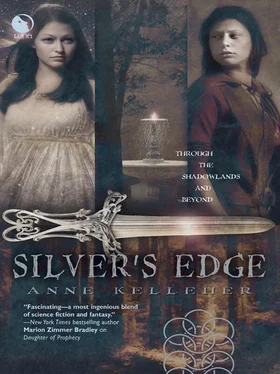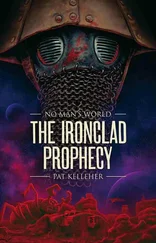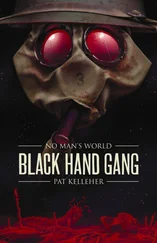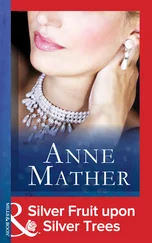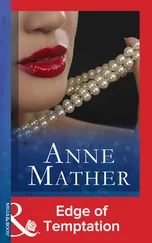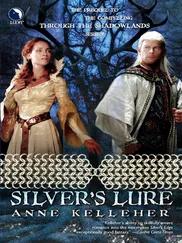But Finuviel was not. Artimour plucked the doublet from Dariel’s hand and whipped it on, then sat down on the edge of the bed, and reached for a boot, thinking fast. Perhaps there was a way to turn this unexpected calamity to his advantage. “Bring the mortal to the library, then have my horse saddled and pack my saddle roll. The Queen must be told of this as quickly as possible.” Tidings such as this should be brought directly to the Queen and her Council. It would also provide him an opportunity to discover how his replacement had been engineered. He paused in tugging his first boot on. “You’re sure it’s a goblin’s head?”
Dariel looked up from handing over the second boot. “You’ll smell it on the mortal yourself, my lord.”
Artimour allowed Dariel to tug and brush and pat until he stepped away, satisfied. “I’ll see the mortal now. And something to break my fast—I can’t remember if I ate dinner last night or not.”
“You had no time to finish it, my lord.” Dariel handed him a parchment packet, and with a quick bow, was gone.
Artimour stalked down the hall to the library he shared with the other officers and sank into the deep cushions of the chair behind his desk. On the one hand, he was sickened by the potential loss of three more soldiers, soldiers they could not afford to lose, men who’d become friends in the long days of their preparations. And on the other, a mortal maiden come to show the Queen the head of a goblin found lying dead in Shadow could only mean that against all expectation, all assumptions, the Caul’s power had failed—or fluctuated, perhaps, like the webs of magic that bound the borders. But how was that even possible? he wondered. The magic of the Caul was supposed to be a special blending of mortal and sidhe energies. It was not linked to the reigning Queen in the same way as the magical wards containing the goblins, and thus, was not expected to be affected by Alemandine’s pregnancy. But how else to explain how a goblin could have fallen into Shadow? It struck him odd that the task of bringing the goblin’s head here—a wholly unexpected stroke of logical behavior coming from mortals he would not have foreseen—should have fallen to a mere girlchild. Were there not warriors worthy of the task? Born under the shadow of mortal taint, he had always distanced himself from anything having to do with humans. And yet, even to him, this action seemed extraordinary, the last thing one might expect from a mortal.
He ripped open the parchment packet. It was from Finuviel advising him to expect the reinforcements in ten days. Ten days? He put the parchment down and rubbed his eyes. Ten days meant something different today than it had before last night, before he’d witnessed his first true death. Ordinarily the sidhe did not die. They boarded ships and went into the West, when their time in Faerie grew wearisome. That is, unless they were slain by either goblin or silver. It was not something he had ever seen until last night, and it had shaken him profoundly, shocked him to his very core. The goblins that had roared across the boundary last night were different, he thought, his mind replaying the events with such crystalline clarity it felt as if he relived them anew. Their hides were tougher, their claws longer and thicker, and they fought with a ferocity he’d never seen before. The web was strained nearly to the breaking point and though ultimately it had held, and they’d successfully driven off the goblins, it had cost him a knight. He had seen Lothalian’s eyes flash green as his essence, his soul, his self was consumed on the spot before them all by a greedy goblin who grinned as he raised the lifeless corpse to his slavering maw. “No!” Artimour had heard himself roar, and with a mighty sweep of his broadsword, he’d beheaded the goblin where he stood. But there was no saving Lothalian.
And now, possibly three more lost to Faerie forever? Winter was coming soon, when the landscape grayed, and the goblins’ natural color gave them an added advantage. He felt a grim and growing certainty that something worse than was predicted lay in store. He scanned the dispatch again. Finuviel had sent it three days previously. They were still seven days out. Riding hard, and alone, he could intercept them probably within two, maybe make it to Court in three. Or he could go directly to Court, and send another messenger to intercept Finuviel.
He’d hear for himself the mortal’s story, and then be off. As if on cue, the door opened, and Dariel stood aside to let the mortal woman pass. Artimour looked up, scrutinizing the first mortal he’d ever seen with an interest far more intense than he would have cared to admit. Dariel followed her into the room, carrying on an inlaid serving tray a basket of bread, fresh from the ovens, a pot of warm yellow cheese, and a pitcher of foaming milk beside two crystal goblets. The squire set the tray on a corner of his desk. He poured the milk into the goblets.
“Thank you, Dariel. You can leave us.” He motioned the squire to shut the door, and stared at the girl who stood before his desk, with raised chin and squared shoulders, proud as any princess, and grubbier than the meanest garden gremlin that had ever worked in the Palace gardens. Long, black curls tangled around her face, haphazardly tied back with a rough ribbon of indeterminate color. Her simple tunic was made of undyed homespun. The front of the tunic was stained with soot and sweat and suspicious smears that stank of goblin. It fell just below her exposed knees, revealing bare legs covered by the slightest shadow of fine dark hair. Her boots were made of leather so crudely cut and sewn he wondered how she could walk in them. She wore a cloak that had as much style as if she’d pinned a tent around her broad shoulders, and a belt barely worthy of the name, a rude scrap of leather buckled around her thick waist. Her face was just as dirty as her hands, which were black to the nails. Her cheeks were streaked with grime, but it was her eyes, her eyes that burned like two dark coals, that arrested him. There was such mettle, such passion in those eyes that something deep inside him responded immediately. His sidhe half recognized it as the potent lure of the mortal, the magnetism that sucked his kind into a vortex of need for the rush of raw energy said to emanate like a tangible thing from every human. He drew a deep breath as those dark eyes seared his skin. He could feel desperation rising from her pores like a hot mist.
But even as part of him responded, another part recoiled, disgusted by the dirt that seemed embedded into her skin, by the sharp odor of stale sweat, by the lank strands of greasy hair. No wonder his mother’s people regarded his father’s as something to be toyed with, or, better yet, avoided altogether. No wonder Timias was mocked and scorned for being mortal-mooned, as they called it. It looked as if these creatures lived little better than their own animals.
Suddenly Artimour was angry, angrier than he could ever remember being. It appalled him to think that three of his comrades—creatures of grace and light and beauty all—might have died for such an appallingly filthy clod of mortal flesh that had the audacity to live and breathe and stand before him as though her dirty little life might be worth even half one of theirs. “They tell me three scouts are missing.” He spoke quietly, evenly, but the accusation was clear. “At dawn, the goblins should have returned to their lairs, weakened by the rising sun. But your human scent drew them on, and into the patrol who should have been safe in their barracks. But for you.”
She cast down her eyes, her hands laced together like a lump in her lap. “I did not mean to make trouble or cause you grief.”
He pressed his lips together. What in mortal experience could compare to the death of a sidhe at the hand of a goblin? He thought about what he knew of mortals. They were born, they dashed through their helter-skelter lives, breeding faster than rats, and then died, burned out like cinders, their bodies turned to ash. In between, they tempted hapless sidhe foolish enough to bother with them. “Cause me grief?” He shook his head, spitting out the words like cherry pits. “You’ve no idea what you’ve caused or what’s been lost.” He looked away, overcome by scorn and disgust and the weight of the potential loss of not just one comrade to the true death, but four.
Читать дальше
